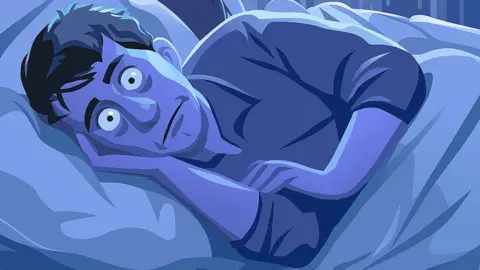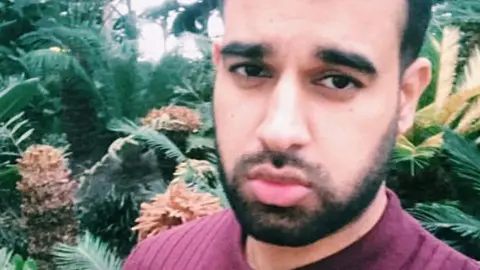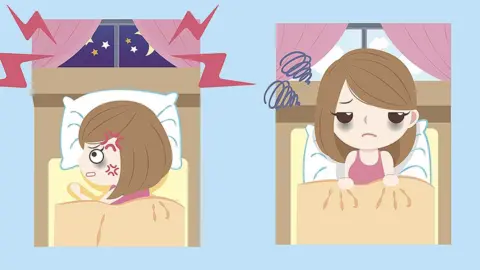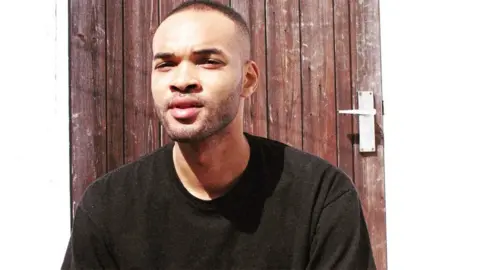Insomnia: 'No link' between sleepless nights and early death
 Getty Images
Getty ImagesThere's some good news for people with insomnia - your lack of sleep is probably not going to kill you.
A new report published by the journal Sleep Medicine Reviews says there is no link between insomnia and early death.
This may or may not come as some comfort to anyone who's lying awake at 4am in the morning panicking about nothing whatsoever.
Scientists reviewed 17 studies, which covered close to 37 million people, to compile their results.
This new report goes against what the NHS says, which claims that as well as putting people at risk of obesity, heart disease and type 2 diabetes, that insomnia shortens life expectancy.
But for people who are struggling with insomnia, long-term concerns about life spans aren't what's troubling them - often they're just trying to make it to the end of the day.
'I break down my day just to get through it'
 Naveed Khan
Naveed Khan"I don't think about it like that," says Naveed Khan, who works in a secondary school and says he gets no more than four hours' sleep a night.
"I had a really bad night earlier this week, really awful. All I could think about next day in work was that I needed to get through the day.
"I teach a couple of classes and I just think: 'Right if I can make it through that hour it's done, then I just have to get to break time, then I've done that, then there's lunch duty.
"I'm breaking my day down just to get through it."
Up to 30% of people in the UK are believed to suffer from insomnia, so it's likely someone near you as you read this is struggling with the effects of sleep deprivation.

Can you improve your sleep?
 Getty Images
Getty ImagesIt's not easy to beat insomnia alone, but there are things you can do to improve your chances of getting a better night's sleep.
The NHS recommends things like exercising to tire yourself out during the day and cutting down on caffeine.
It also says smoking, eating too much or drinking alcohol late at night can stop you from sleeping well.
Other recommendations include writing a list of things that are playing on your mind and trying to get to bed at a similar time every night.

'On the worst days, I'm horrible to be around'
 Almara Abgarian
Almara Abgarian"On the worst, worst days I am horrible to be around because I am so tired that I'm taking it out on everyone and everything," says 29-year-old writer Almara Abgarian.
On a good night Almara says she might get six hours sleep - but wakes up constantly through the night due to worry and stress, which is having an impact on her life.
"It's less about having sleep and more about not having the energy to do things. So for instance, I'm less inclined to hang out with friends - which is of course good for your mental health," she says.
When asked whether she's worried about the impact of insomnia on her long-term health, Almara says she is just "hoping it won't last".
Lack of sleep for Almara has become normal in her day-to-day life - and other insomnia sufferers agree.
'I don't know how it feels to sleep through the night'
 Ryan Ashley
Ryan Ashley"I feel like I've become so accustomed to it," says 23-year-old musician Ryan Ashley.
"I was speaking to my mum earlier and she got a bit sad. I said you don't need to be sad, this is something I've had my whole life and it's just now part of my routine.
"It would be nice to sleep through but I can't relate because I don't know how that feels."
Ryan says a turbulent childhood left him unable to sleep and like Almara, he wakes up constantly during the night.
He's not worried whether his insomnia could impact on his lifespan either.
"I do other things that I'm sure are a lot worse for my body than not being able to sleep," he says.
But while the new report may lift concerns about an early death, it still links insomnia with illnesses such as dementia and depression, reports The Times.
